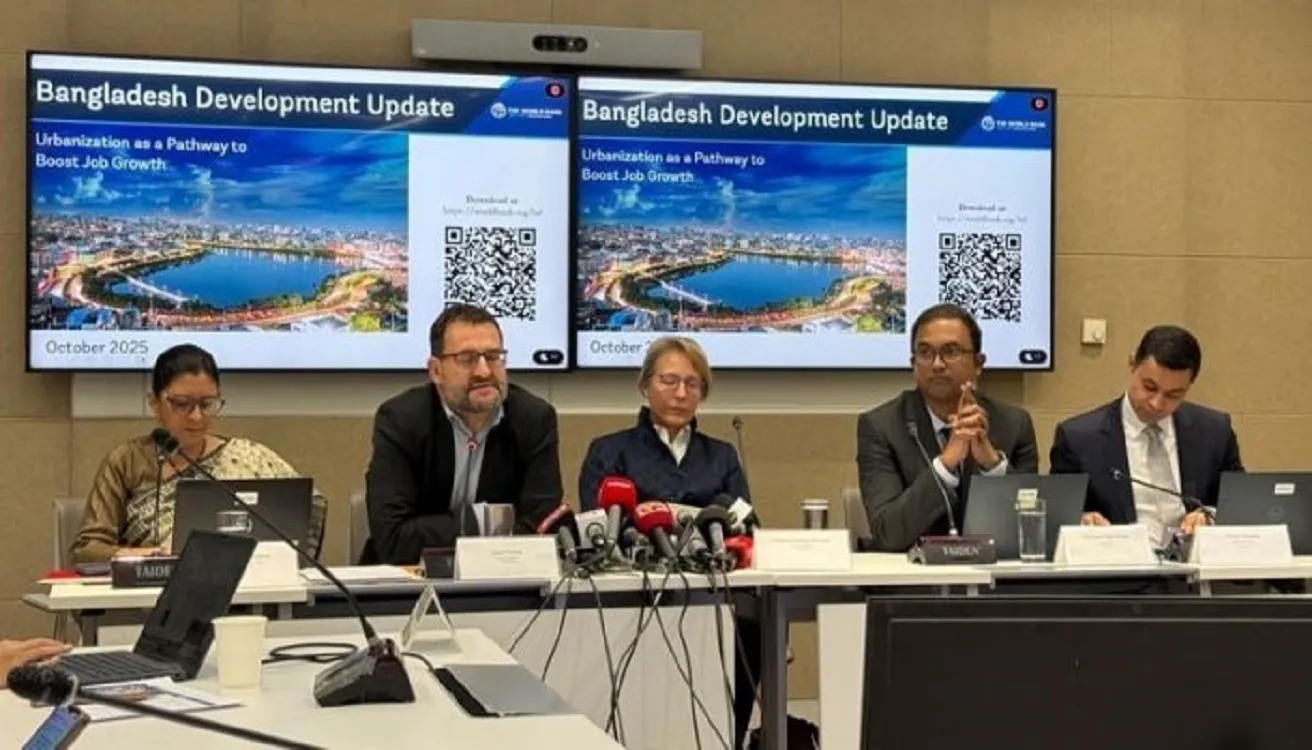- National
- Bangladesh
- Business
- International
- Sports
- Entertainment
- Politics
- Technology
- Life Style
- Religion
- Opinion
Tuesday, 03 March 2026



World Bank report projects economic growth to rise to 4.8% in the 2025-26 fiscal year and 6.3% in 2026-27, maintaining an upward trajectory in the medium term.
Despite early setbacks in the current fiscal year, Bangladesh’s economy has rebounded, driven by robust export growth, record remittance inflows, and strengthened foreign exchange reserves, according to the World Bank’s latest Bangladesh Development Update report.
However, sustaining this growth requires urgent and bold reforms.
Foreign reserves have stabilised, and inflation has moderated due to tight monetary policy, favorable harvests, and lower tariffs on essential food items.
Nevertheless, a wider budget deficit persists due to weak revenue collection and rising subsidy and interest costs.
Poverty is expected to rise between 2023 and 2024, with the labour force participation rate dropping from 60.9% to 56.9%, disproportionately affecting women.
Of the three million new working-age individuals, 2.4 million are women unable to enter the labour market.
Jean Pesme, World Bank Country Director for Bangladesh and Bhutan, emphasised that while Bangladesh’s economy has shown resilience, sustained growth hinges on improving tax collection, addressing banking sector vulnerabilities, reducing fuel subsidies, and implementing urban planning.
The adoption of a market-based exchange rate in 2025 has alleviated external pressures, narrowing the current account deficit through increased exports and reduced imports.
Comment